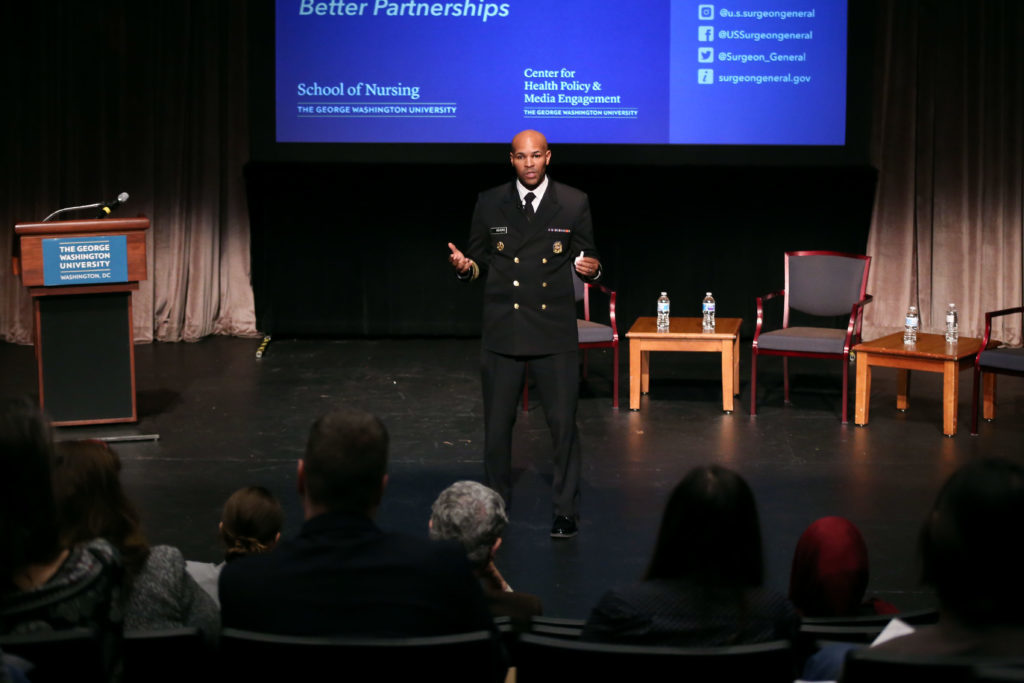U.S. Surgeon General Jerome Adams spoke at Betts Theater Monday about the opioid epidemic and community-based solutions to the crisis.
The event, titled “Better Health Through Better Partnerships,” opened with welcoming remarks from Pamela Jeffries, the dean of the School of Nursing. During his speech, Adams spoke about the importance of forming nontraditional partnerships with businesses and law enforcement, and mobilizing citizens to take action to combat the opioid epidemic and to improve public health.
Adams, who holds the rank of vice admiral in the U.S. Public Health Service Commissioned Corps, said he and other health care professionals were once “part of the problem” by overprescribing opioids as painkillers, but now he’s “excited to be part of the solution.”
Adams divided his proposed solution to the crisis into three parts: prevention, education and the administration of Naloxone, a drug that rapidly reverses opioid overdoses.
Adams focused his remarks about education and prevention on reducing the amount of opioid medication prescribed, informing the public about alternatives to treat chronic pain and raising awareness about how to properly dispose of prescription opioids.
He encouraged health care professionals to take an active role in educating the public about important health issues and eliminating common health misconceptions, like the belief that vaccines cause autism or that prescription opioids aren’t that addictive.
“There is nothing more powerful than a respected advocate and leader who is armed with research and the facts, and there is nothing more dangerous than a respected leader and advocate who doesn’t have the facts,” he said.
Adams said health professionals should forge partnerships with businesses, faith-based organizations and law enforcement officials to combat addiction. He said that together, the groups can embrace new programs, like mandatory police follow-ups with people who have recently suffered an overdose or hiring procedures to help candidates with substance abuse disorder find work if they complete a treatment program.
“It’s about firming up partnerships with traditional partners, but it’s also about thinking about who is not at the table,” he said.
Adams said one of his top priorities as surgeon general is making Naloxone, the drug that blocks the effects of opioids, as “ubiquitous as CPR.” His office has worked with pharmaceutical companies to decrease the price of Naloxone and with the Centers for Disease Control and Prevention to give grants to local and state governments to acquire the life-saving drug, Adams said.
He said the destigmatization of addiction is a vital component of mitigating the opioid epidemic because the stigma can discourage people from seeking treatment.
“Stigma keeps people from coming forward,” he said. “Stigma keeps people in the shadows.”
Adams said that although it’s easy to picture people who suffer from substance abuse as lacking discipline or morals, many people living with opioid abuse disorder are well-respected professionals. He added that his brother is serving time in jail because of his addiction.
“Addiction is a chronic disease, not a moral failing, and it must be treated with skill, with urgency, and, most importantly – it has got to be treated with compassion,” he said. “If this can happen to the brother of the United States surgeon general, it can happen to any of us.”




